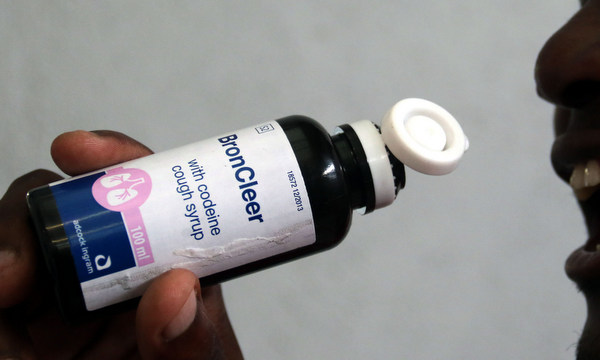By Paul Sixpence
DRUG harm reduction advocacy organisations have welcomed the recent decision by the Medicines Control Authority of Zimbabwe (MCAZ) to suspend licences and operating permits of pharmaceutical operators enabling the abuse of opioid prescription cough syrups.
“I applaud the work done by MCAZ as they cut the supply of Histalix (prescription cough mixture) as a measure in drug supply reduction, which is a vital part of the National Drug Master Plan of Zimbabwe,” said Tania Marumbwa, Director at Zimbabwe People Who Use Drugs (ZimPUD).
MCAZ recently announced that it had suspended operating licences of six pharmaceutical wholesalers and four pharmacists for illicitly distributing and selling prescription cough mixtures until 2025. Cough syrups, Histalix and Broncleer, are often abused by youths. The medicines contain an opioid, codeine.
In as much as drug user rights activists applaud the medicines regulatory authority decision to curtail the supply side of illicit substances, they are raising concerns on harm reduction among drug users.
“There is a cause for concern for codeine users who were buying from pharmacy workers and dealers who were in turn getting their supply from pharmaceutical companies using back door dealings. This may have reduced supply but demand for the product on the street is still there,” Marumbwa cautioned.
Activist organisations further called for policy reform to ensure that MCAZ efforts aimed at licit and illicit drug control are sustained by sanctioning masterminds behind the proliferation of illegal substance trade and abuse in Zimbabwe.
“Whilst the move is commendable, more still needs to be done in terms of policy reform to ensure that drug supply is tamed. The current laws concentrate on small fish, people who use drugs instead of the big fish, the traffickers. As long as that is not solved, the MCAZ efforts might be in vain,” the Zimbabwe Civil Liberties and Drug Network (ZCLDN) advised.
Cautionary advice from harm reduction advocates is informed by the possibility of the illegal drug peddling industry going underground, with drug users exposed to unsafe and counterfeit alternatives.
“Codeine containing pharmaceutical products such as Broncleer and Histalix that are found in the streets are sold at a slightly cheaper price but are not always safe for the drug user. There is a possibility that they may be laced with other harmful substances. This exposes the drug user to a greater health risk such as overdose or getting sick from the unknown substances added to the codeine products,” Marumbwa further added.
Activists and consumer protection groups raised concern on negligence, disregard for safety standards and the endangerment of public health by pharmaceutical wholesalers, retailers and pharmacists.
“As a harm reduction advocate my main concern is the end user. Drug dealers and peddlers do not value our lives as consumers and have no interest in the quality of our lives as their customers. People who use or inject drugs are just a means to earning a livelihood to them, we are nothing but a dollar to them. In harm reduction, safe supply ensures that drug users at high risk of overdose are able to access prescribed drugs in a safe way as opposed to the alternative – illegal and toxic drug supply,” Marumbwa bemoaned.
Rosemary Mpofu, Chief Executive Officer (CEO) at consumer rights group, Consumer Council of Zimbabwe (CCZ) echoed Marumbwa’s concerns on the “irresponsibility” of pharmaceutical dealers towards the “health and safety of consumers.” Mpofu cited the illegal trade in medicines in streets under unsuitable conditions.
Zimbabwe’s National Drug Master Plan (2020 – 2025) calls for the need to address supply, demand and harm reduction of legal and illegal drugs. The policy framework notes that approximately 60% of inmates at mental health institutions in Zimbabwe have a drug-related problem.

